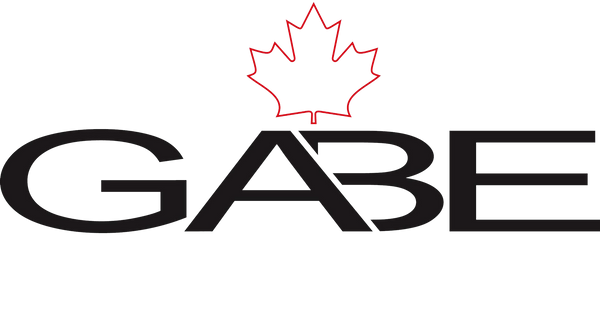
What is Ethical Fashion?
Share
With the fashion industry being one of the leading contributors to environmental pollution and unethical practices, ethical fashion, also known as sustainable fashion, eco-fashion, or slow fashion, is rapidly gaining popularity among conscious consumers.
Understanding ethical fashion is vital for making responsible choices. This guide aims to demystify ethical fashion and help you make informed decisions that benefit both people and the planet.
What is Ethical Fashion?
When the world was strictly dominated by fast fashion, consumers were often unaware of the social and environmental consequences of their clothing choices. Lower prices and fast-changing trends, increased demand for cheap garments, and drove more and more production into unregulated factories overseas. Over time, people started to realize that the clothes they consumed carried hidden costs - the suffering of the environment, exploitation of workers, and the mistreatment of animals.
This is when ethical fashion started to pick up steam. Conscious consumers wanted to buy long-lasting fashion that truly aligned with their values.
Ethical fashion is about solving the problems of the fashion industry. From responsible sourcing and agriculture, to fairer labor practices, to reducing waste, ethical fashion strives to benefit everyone along the supply chain. Clothing is ethical when it delivers on this promise of benefiting all stakeholders. The farmers who grow the raw materials. The workers who make the garments. The consumers who wear them. And the environment that sustains us all.
Why is Ethical Fashion Important?
It Reduces Environmental Impact: The fashion industry is responsible for a significant portion of global pollution, including water pollution from textile dyeing and treatment, as well as air pollution from the energy used in production. Ethical fashion reduces this impact through sustainable practices, such as using eco-friendly materials and minimizing waste. By embracing ethical fashion, we can collectively work towards a cleaner, greener future for our planet.
It Gives Power Back to Local Communities: Ethical fashion also focuses on uplifting and empowering local communities. By sourcing materials and labor from local artisans and small-scale producers, ethical fashion brands invest in the growth and development of these communities. This support fosters financial independence, preserves traditional craftsmanship, and celebrates the rich cultural heritage of various regions around the world.
It Encourages Conscious Consumption: Fast fashion has led to a culture of disposable clothing, where garments are worn only a few times before being discarded. This wasteful practice contributes to the growing problem of textile waste in landfills. Ethical fashion encourages conscious consumption, promoting the idea of purchasing fewer, high-quality garments that are designed to last. By adopting a more mindful approach to our wardrobes, we can break the cycle of overconsumption and reduce the burden on our planet's resources.
Key Aspects of Ethical Fashion
Sustainable Materials: Ethical fashion brands prioritize eco-friendly materials, such as organic cotton, recycled polyester, or Tencel, which have a lower environmental impact than conventional materials.
Fair Trade and Labor Practices: Ethical fashion ensures that workers are paid fair wages and work in safe, healthy conditions. Fair Trade certification is one way for consumers to identify brands that uphold these standards.
Transparency: Ethical fashion brands are transparent about their supply chain, allowing consumers to know where their clothes are made and under what conditions.
Circular Economy: Ethical fashion embraces the concept of a circular economy, focusing on designing products that can be easily recycled, upcycled, or biodegraded at the end of their life.
Local Production: Ethical fashion supports local economies by producing garments in the same country or region where they are sold, reducing the environmental impact of transportation and supporting local artisans.

4 Ways to Identify Ethical Fashion Brands
1. Certifications: Look for certifications such as Fair Trade, Global Organic Textile Standard (GOTS), and B Corporation to ensure a brand aligns with ethical fashion principles. For example, Patagonia, a well-known outdoor clothing brand, is a certified B Corporation, while People Tree, a UK-based clothing brand, holds both Fair Trade and GOTS certifications.
2. Transparency: Ethical fashion brands should be transparent about their supply chain, materials used, and labor practices. Check their website for detailed information. For instance, Everlane, an American clothing brand, shares extensive information about their factories, materials, and costs on their website, allowing consumers to make informed decisions.
3. Mission and Values: Investigate the brand's mission and values to ensure they align with ethical fashion principles. Eileen Fisher, a women's clothing brand, is an example of a company with a strong commitment to sustainability and social responsibility, as reflected in their mission and values.
4. Reviews and Recommendations: Seek out reviews from trusted sources and friends to help identify ethical fashion brands. Websites like Good On You and The Good Trade offer reviews and ratings of various fashion brands, highlighting their sustainability and ethical practices.
How to Add Ethical Fashion into Your Wardrobe
Educate Yourself: Research ethical fashion brands and stay informed about industry news and developments. Sign up for newsletters from ethical fashion platforms, like EcoCult or The Good Trade, to keep up to date on the latest sustainable fashion trends and brand recommendations.
Shop Mindfully: Buy fewer, higher-quality pieces that are made ethically and sustainably, focusing on timeless designs that can be worn for years to come. For example, consider investing in a versatile, ethically-made dress from Reformation or a durable, sustainable jacket from Patagonia.
Support Local: Support local artisans and designers, helping to reduce the environmental impact of transportation and promoting local economies. Attend local fashion markets, like the Green Fashion Bazaar in Berlin or the Slow Fashion Market in Sydney, to discover ethical fashion brands in your area.
Repair and Upcycle: Extend the life of your garments by repairing any damage or upcycling them into something new. Many ethical fashion brands, like Nudie Jeans, offer free repair services for their products, encouraging consumers to keep their clothes for longer.
Embrace Second-hand Shopping: Buying pre-owned clothing reduces the demand for new garments and minimizes your environmental footprint. Explore local thrift stores, consignment shops, or online platforms like Depop and ThredUp to find unique, affordable, and sustainable clothing options.
Spread the Word: Share your ethical fashion journey with friends and family, encouraging them to consider the impact of their clothing choices. Organize clothing swaps or host a sustainable fashion documentary night, like watching "The True Cost," to raise awareness about the importance of ethical fashion.
By expanding your knowledge of ethical fashion and actively incorporating these practices into your wardrobe, you can make a positive impact on the environment, support fair labor practices, and contribute to a more sustainable future for the fashion industry.
